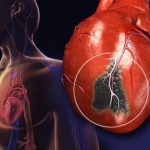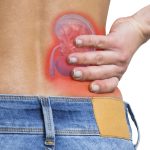How Abdominal Fat Affects Crohn’s and Colitis Medications – Study

A new research published on July 25 in the Journal Gastroenterology has revealed that certain medications might not effectively treat inflammatory bowel disease (IBD) when patients carry excess belly fat. IBD includes conditions like Crohn’s disease and ulcerative colitis.
According to the study conducted by researchers at Cedars-Sinai in Los Angeles, using the wrong anti-inflammatory drug for these patients could result in lower rates of remission.
Dr. Andres Yarur, a gastroenterologist at Cedars-Sinai, stated, “Even though biologic medications have significantly improved outcomes for our patients with Crohn’s disease or ulcerative colitis, some people do not respond well to these therapies. In our study, we found that patients with higher amounts of internal abdominal fat were less likely to improve and experience remission from their disease.”
Biologic medications work differently from some anti-inflammatory drugs as they block specific targets causing inflammation in the body. The researchers observed that patients with higher levels of visceral fat, which is fat located deep within the abdomen surrounding organs like the stomach, liver, and bowels, had lower levels of the biologic medications in their blood after treatment. This resulted in reduced rates of steroid-free remission and bowel healing.
Dr. Gil Melmed, director of Inflammatory Bowel Disease Clinical Research at Cedars-Sinai, pointed out, “It seems the fat tissue on the inner side of the abdomen, in particular, impacts treatment, so we may need to use higher doses of the drugs to help these patients.”
The study involved 141 IBD patients treated with one of three biologic medications: infliximab (Remicade), ustekinumab (Stelara), or vedolizumab (Entyvio).
The research found that higher visceral adiposity (abdominal fat) correlated with elevated levels of pro-inflammatory cytokines, indicating that fat tissue promotes inflammation, contrary to the desired effect, and contributes to resistance to biologic drug therapy. Dr. Melmed mentioned that it remains unknown whether reducing visceral fat or administering higher medication doses would enhance drug effectiveness.
Dr. Yarur suggested that different types of medication might be more effective in patients with high intra-abdominal visceral fat. He said, “We need to investigate drugs with different mechanisms of action, especially other small molecules, to see if our findings hold,” emphasizing the need for alternative treatments for IBD as obesity and metabolic syndrome become more common.





